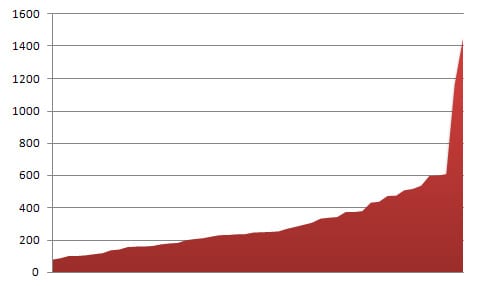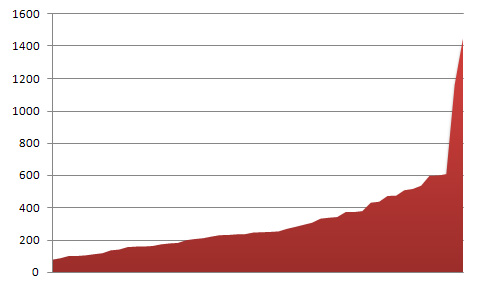“How long is too long of a blog post? Is there an ideal blog post length?”
That was the question posed to me the other day. My response is if you have to ask, it’s probably too long. If I need multiple sittings, a lunch break, caffeine, or a road map to make it through your blog post, chances are you need to trim it down a bit. Maybe a lot.
For the average entrepreneur, time is money and a longer blog post cuts into prime billable hours for someone running their own business. For entrepreneurs writing their own blogs, trimming your posts into more easily digestible segments is a front-end investment with a long-term reward. Stronger blog posts build traffic, increase SEO, strengthen your brand’s message, and improve your digital footprint.
So, what is the ideal length for a blog post? How long should a blog post be? Is there a formula for finding the idea blog post length for your brand’s message?
There aren’t as many rules as there are parameters for blog post length. The difference is parameters are more forgiving than rules. Too long and you lose your audience. Too short and you don’t have enough material to fully develop your idea. The mind can only absorb as much as the backside can endure.
Research shows the magical number to be somewhere between 400-600 words. It’s approximately 5-8 minutes of reading for the average adult reader, a fair amount of time for a blog post. I rarely post over 500 words per blog post.
If you’re an author or a keynote speaker, your audience is used to longer messages from you. You have more credibility to share longer blog posts, maybe 800-1200 words, or more.
The truth is there’s no exact number to best fit every blog post. There are a few practical ways to find the right post length for your audience…
- Audience feedback – Ask some, or all, of your readers to share their feedback. Throw in a freebie as an appreciation of their time. Make it worth their time to help you.
- Try different blog post lengths – Write both longer and shorter posts and watch your analytics for audience interest, engagement, and click rates.
- Research other bloggers – Target a few highly successful bloggers and study their most recent posts. Copy/paste their posts into Word for a word count. Did they use bullet points, pictures, line breaks, or anything else to keep the reader engaged?
- Write for quality, not quantity. If you can say what you need to say in less words, do it. Being focused is commendable and appreciated. As the saying goes, don’t worry about your word count; worry about making your words count.


